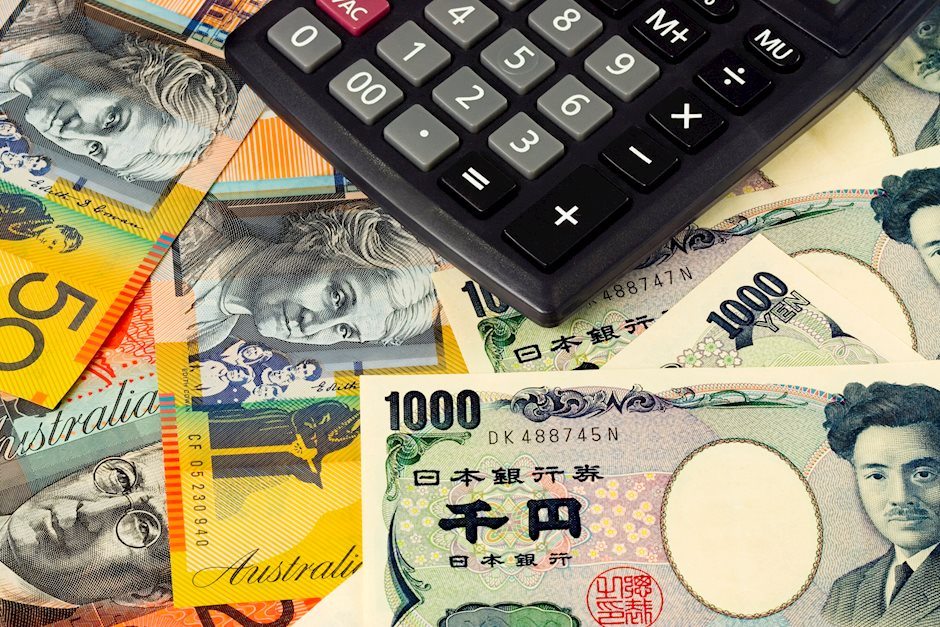AUD/JPY bounces after hitting 15-month lows on intense flight to safety
- AUD/JPY rebounds after crashing to 15-month lows near 90.00.
- Risk-aversion remains in full steam, as Iran is likely to attack Israel.
- The Japanese Yen keeps rallying on safe-haven flows at the expense of the higher-yielding Aussie.

Having tested offers briefly above 95.00 in the Asian session, AUD/JPY has turned south, witnessing a steep sell-off in the European session on Monday. Heightening risk-aversion across the financial markets contributed to increased flight to safety in the Japanese Yen while traders cut their exposure in the higher-yielding currency – the Australian Dollar.
As safety flows intensified, AUD/JPY lost five big figures to reach the lowest level in 15 months at 90.16 before rebounding swiftly to near 92.00, where it now wavers. Despite the upswing, the pair still sheds nearly 4% on the day.
Markets adopt a ‘sell everything’ mode, as they sense an imminent Iran-Israel war after US Secretary of State Antony Blinken said during the G7 meeting on Sunday that an attack by Iran and Hezbollah against Israel could start as early as Monday, Axios reported, citing three sources.
Further, US recession fears came to the fore, following a weak American employment report published on Friday. Escalating Middle East tensions combined with looming US recession risks fuelled intense risk aversion and provided extra legs to the Japanese Yen’s upsurge, smashing AUD/JPY, the so-called risk barometer.
The Japanese Yen also remains underpinned by the divergent monetary policy outlooks between the US Federal Reserve (Fed) and the Bank of Japan (BoJ).
Meanwhile, the Aussie found temporary respite from the upbeat China’s Caixin Services PMI data for July, which jumped to 52.1 from June’s 51.2. However, the Australian Dollar succumbed to the bearish pressure due to unabated demand for safety assets, exerting additional downside pressure on the AUD/JPY cross.
Looking ahead, traders will pay close attention to any developments on the Middle East geopolitical front, as an Iranian attack is foreseen in the next 24 to 48 hours on Israel. Also, the pair awaits the Reserve Bank of Australia’s (RBA) policy announcements on Tuesday for a fresh directional impetus.
Risk sentiment FAQs
In the world of financial jargon the two widely used terms “risk-on” and “risk off'' refer to the level of risk that investors are willing to stomach during the period referenced. In a “risk-on” market, investors are optimistic about the future and more willing to buy risky assets. In a “risk-off” market investors start to ‘play it safe’ because they are worried about the future, and therefore buy less risky assets that are more certain of bringing a return, even if it is relatively modest.
Typically, during periods of “risk-on”, stock markets will rise, most commodities – except Gold – will also gain in value, since they benefit from a positive growth outlook. The currencies of nations that are heavy commodity exporters strengthen because of increased demand, and Cryptocurrencies rise. In a “risk-off” market, Bonds go up – especially major government Bonds – Gold shines, and safe-haven currencies such as the Japanese Yen, Swiss Franc and US Dollar all benefit.
The Australian Dollar (AUD), the Canadian Dollar (CAD), the New Zealand Dollar (NZD) and minor FX like the Ruble (RUB) and the South African Rand (ZAR), all tend to rise in markets that are “risk-on”. This is because the economies of these currencies are heavily reliant on commodity exports for growth, and commodities tend to rise in price during risk-on periods. This is because investors foresee greater demand for raw materials in the future due to heightened economic activity.
The major currencies that tend to rise during periods of “risk-off” are the US Dollar (USD), the Japanese Yen (JPY) and the Swiss Franc (CHF). The US Dollar, because it is the world’s reserve currency, and because in times of crisis investors buy US government debt, which is seen as safe because the largest economy in the world is unlikely to default. The Yen, from increased demand for Japanese government bonds, because a high proportion are held by domestic investors who are unlikely to dump them – even in a crisis. The Swiss Franc, because strict Swiss banking laws offer investors enhanced capital protection.
Author

Dhwani Mehta
FXStreet
Residing in Mumbai (India), Dhwani is a Senior Analyst and Manager of the Asian session at FXStreet. She has over 10 years of experience in analyzing and covering the global financial markets, with specialization in Forex and commodities markets.

















